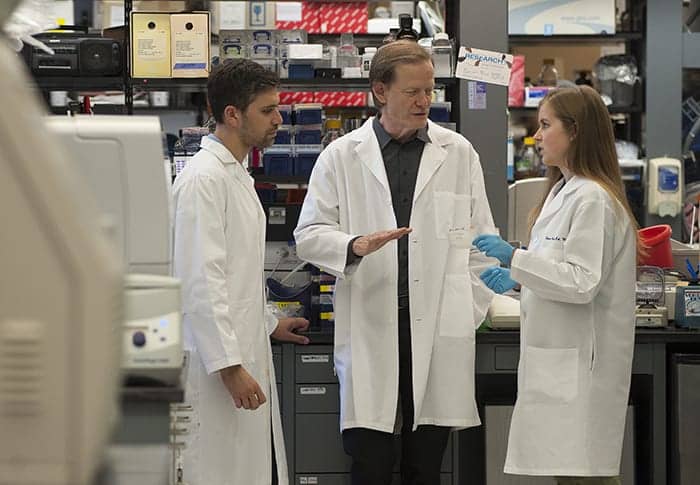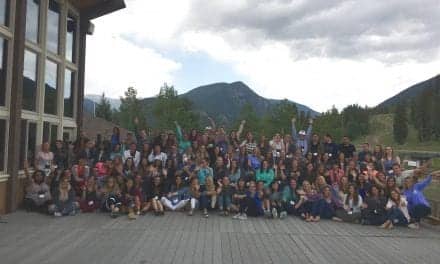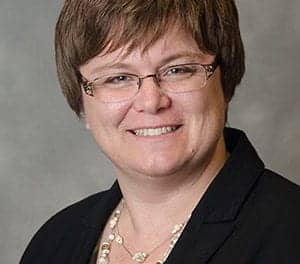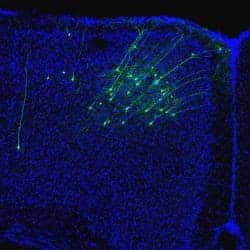Massachusetts Eye and Ear—a Boston-based teaching hospital for Harvard Medical School—has received an anonymous gift totaling more than $20 million to accelerate research at its Eaton-Peabody Laboratories, a preeminent hearing research center, the hospital announced on its website. This gift reportedly represents one of the country’s largest philanthropic investments ever to advance research on hearing and hearing loss, a significant public health problem impacting one-third of the world’s population over age 65. The Eaton-Peabody Laboratories are based within the Mass. Eye and Ear Department of Otolaryngology, ranked #1 in the nation by U.S. News & World Report for 2016-17.

Albert Edge, PhD (center), hearing researcher at Mass. Eye and Ear, meets with research fellows working in his lab aimed at restoring hearing through regenerating sensory cells in the ear. Credit: John Earle.
“Hearing loss robs millions of people of the ability to easily communicate with loved ones, colleagues, and friends and often results in devastating social isolation,” said D. Bradley Welling, MD, PhD, FACS, the Walter Augustus LeCompte Professor and Chair of Otolaryngology at Harvard Medical School and Chief of Otolaryngology at Massachusetts Eye and Ear and Massachusetts General Hospital. “This historic donation to our research program comes at an exciting time, when advances are happening every day, and we are closer than ever before to developing new treatments to restore hearing.”
The gift will allow Mass. Eye and Ear to provide long-term sustained research support in the areas of hearing and balance, seed new chairs for faculty, and enable recruitment of additional world-leading hearing researchers, according to the hospital. Scientists at the Eaton-Peabody Laboratories are focused on understanding hearing from the outer ear to the brain, with the goal of pursuing new treatment strategies for hearing loss and other hearing impairments such as tinnitus (ringing in the ears) and hyperacusis (painful hearing sensitivity), as well as balance disorders.
Mass. Eye and Ear researchers have made substantial progress in understanding hearing and hearing loss and in developing treatments to restore hearing. Scientists at Mass. Eye and Ear were reportedly the first to discover stem cells in the inner ear that could be converted to hair cells (sensory cells needed for hearing). They were also the first to restore hearing in mammals by regenerating hair cells and neural connections in the inner ear, said Mass. Eye and Ear.
This gift is a significant boost to the hospital’s Bold Science, Life-Changing Cures campaign, an effort to raise $200 million to accelerate Mass. Eye and Ear research programs by the year 2020. The campaign’s total now tops $151 million.
“Generosity at this level is a game-changer. It means breakthroughs will happen faster, and that translates to better hearing for millions of people sooner than later,” said Wyc Grousbeck, Mass. Eye and Ear board chair. “That’s what Mass. Eye and Ear is all about.”
Source: Mass. Eye and Ear
Image: Mass. Eye and Ear, John Earle






I left a voice mail for Dr. Edge last month about my wanting to sign up for stem cell therapy trials to repopulate lost hair cells, which perhaps is what is primarily responsible for my tinnitus. As a music lover, former certified electronics technician and life long audio enthusiast I’ve done my utmost to protect my priceless gift of hearing from even moderately high and short duration SPLs and all manner of ototoxic drugs, while maintaining a nutritious diet and fitness program. And though also a very healthy 67 year old I have been suffering with tinnitus for 11 years, which began in the right ear and developed in the left ear about 3 years ago.
I am located on Long Island and though working full time I have as much as three weeks vacation time available to participate in the trial study, assuming the trial poses no risk to my hearing. Please advise.
Hopefully they can cure hearing loss and tinnitus